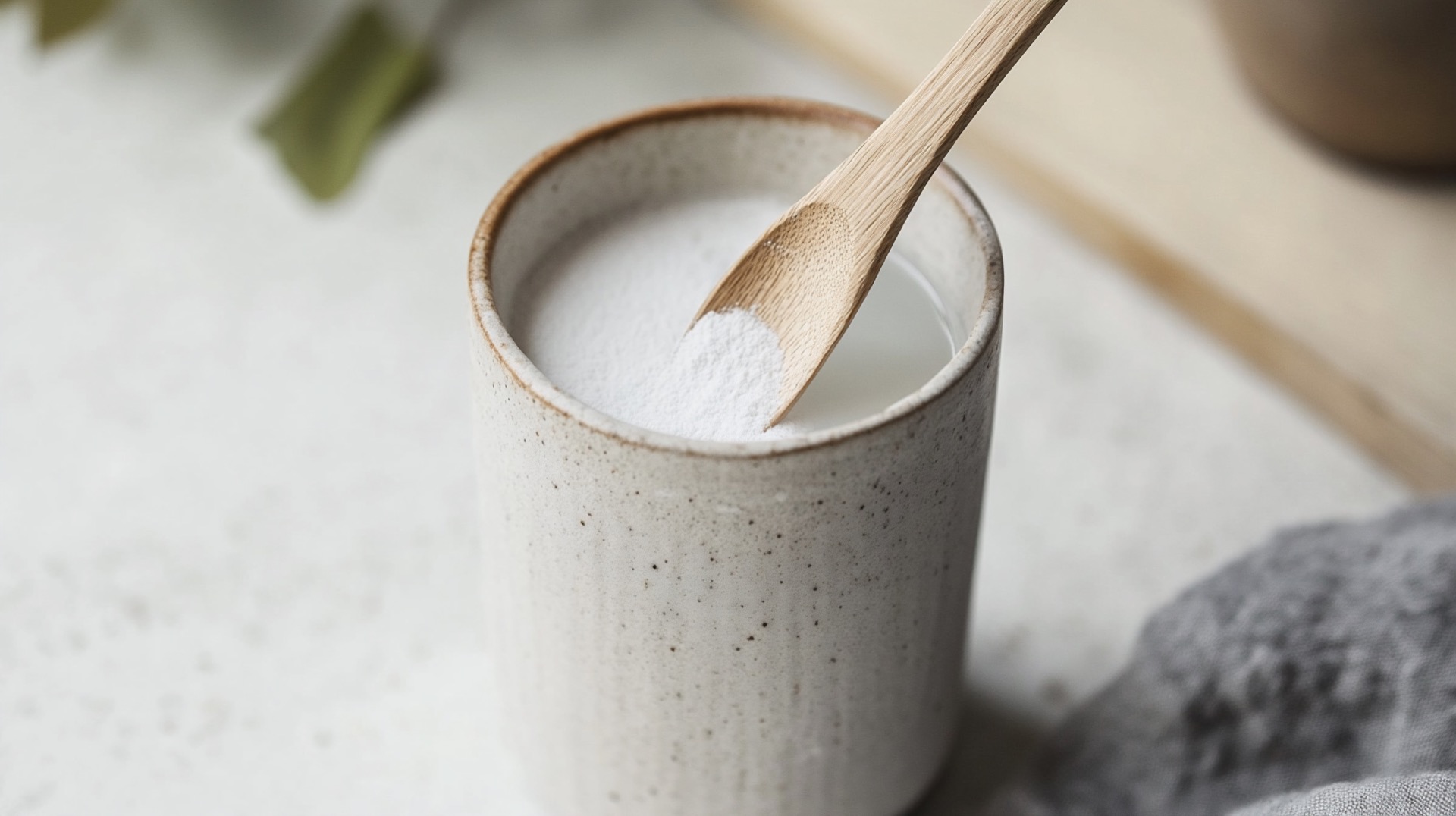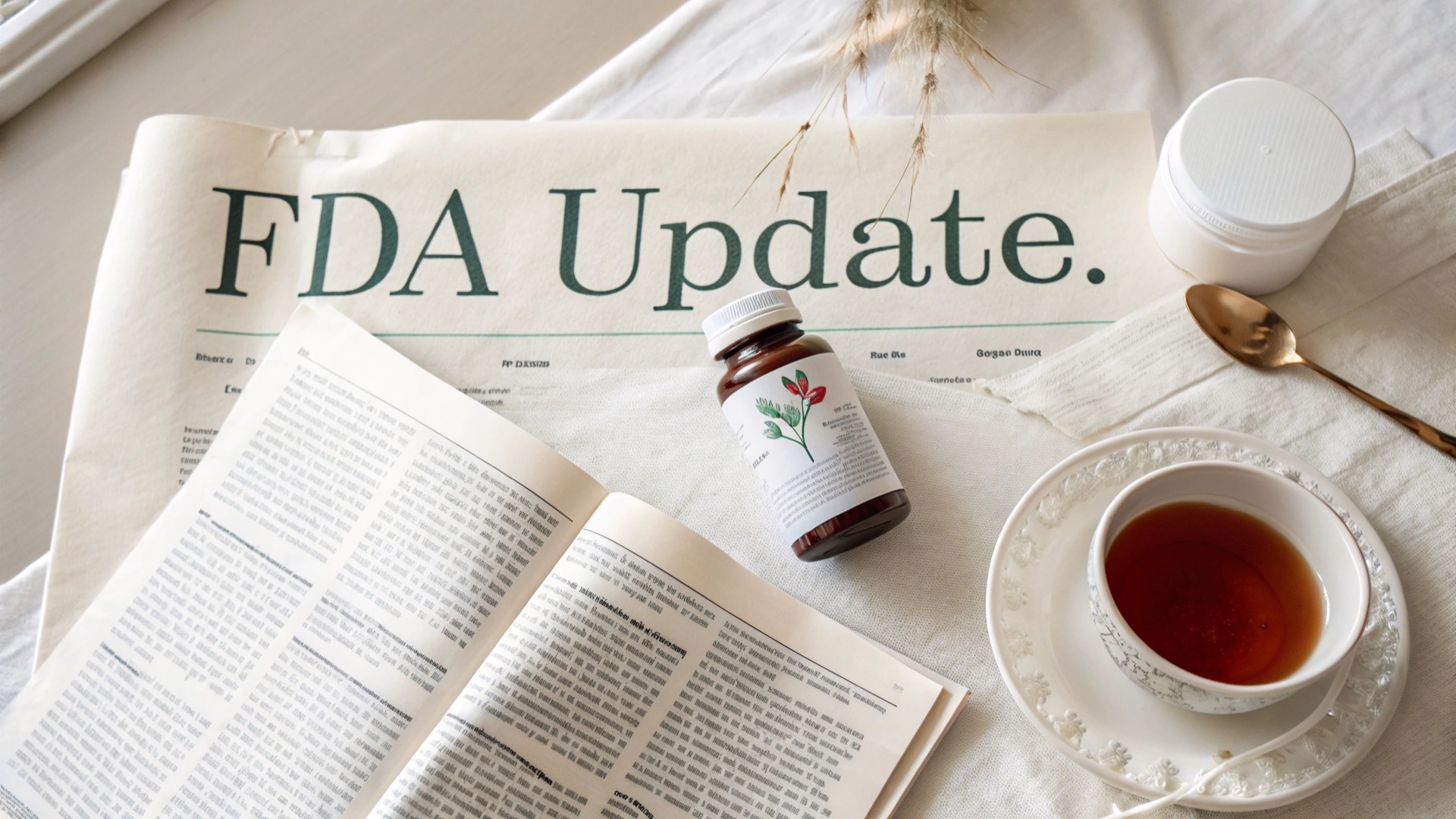Key takeaways
- Spermidine is a natural polyamine found in all cells and is vital for cell growth and function. Its main job is to trigger autophagy. Spermidine activates your body’s cellular cleanup and recycling process, which is crucial for healthy aging and supports a healthy aging process.
- Your natural levels decline with age: This decline is linked to age-related diseases, which is why dietary intake and supplementation are essential. It’s found in many healthy foods: You can get spermidine from foods like wheat germ, soybeans, aged cheese, and mushrooms.
- It’s not the same as sperm: Though first discovered in semen, spermidine is a distinct molecule found throughout the body in both men and women.
Overview
You may have heard the buzz around spermidine in conversations about longevity, anti-aging, and cellular health, but you might be left wondering: What is spermidine, exactly?
Despite its unusual name, spermidine is a naturally occurring and essential compound found in every living cell, from plants to humans.
Understanding spermidine is the first step to unlocking its incredible potential for your health. It’s not just another wellness trend; it’s a fundamental molecule that plays a critical role in how our cells age and renew themselves.
Spermidine plays a central role in key biological processes that support cellular health and longevity. This guide will break down everything you need to know about spermidine in simple, easy-to-understand terms.
What is spermidine?
At its core, spermidine is a polyamine, a small, positively charged molecule that binds to various structures within our cells, including DNA, RNA, and proteins. This binding ability allows it to play a crucial role in a wide range of cellular processes:
- Cell growth and proliferation: It helps regulate the processes that allow cells to grow and divide.
- DNA stability: It helps stabilize the structure of our DNA, protecting our genetic code.
- Gene expression: It can influence which genes are expressed or not.
Spermidine is involved in fundamental biological processes in mammalian cells, including supporting cell division and regulating programmed cell death, both of which are essential for cellular health and longevity.
Spermidine is produced naturally in our bodies, but a significant portion also comes from our diet and the activity of our gut microbiota. However, as highlighted in a critical 2018 review in the journal Science by Madeo et al., our internal spermidine levels peak during youth and steadily decline with age. This age-related decline is a key reason why spermidine has become a significant focus in longevity research.
How does spermidine work in the body?
The most exciting and well-researched function of spermidine is its ability to induce autophagy. The primary mechanism by which spermidine benefits cellular health is by promoting autophagy.
So, what is autophagy? The term means “self-eating,” and it’s your body’s essential quality control and recycling system at the cellular level. Think of it as a microscopic cleanup crew that is constantly working inside your cells.
The science of autophagy: Your body’s cleanup crew
Here’s how the autophagy process works:
- Identification: The cell identifies old, damaged, or dysfunctional components. This can include misfolded proteins and worn-out mitochondria (the cell’s powerhouses). Maintaining healthy mitochondrial function is crucial for energy production and cellular vitality, as well as for protecting against invading pathogens, such as viruses and bacteria.
- Encapsulation: A double-membraned sac, called an autophagosome, forms around this cellular “junk.”
- Recycling: This sac then fuses with a lysosome, which contains powerful enzymes that break down the contents into their basic building blocks (like amino acids and fatty acids).
- Reuse: These raw materials are then released back into the cell to be used as fuel or to build new, healthy components.
Autophagy is crucial for maintaining the efficient operation of our cells. When this process slows down with age, cellular junk accumulates, leading to oxidative stress, inflammation, and an increased risk of age-related diseases.
According to a 2022 review in Nature Aging by Hofer et al., spermidine is a potent and natural inducer of autophagy. It essentially flips the switch to turn this cleanup process back on, helping to restore a more youthful state of cellular function. This is why spermidine is often referred to as a “fasting mimetic”—it provides many of the same cellular benefits as caloric restriction or fasting without requiring you to change your eating schedule.
What are the main benefits of spermidine?
By activating autophagy, spermidine provides a wide range of health benefits that are directly linked to healthy aging. While our “Spermidine Benefits” article covers this in-depth, here is a brief overview:
- Longevity and anti-aging: By clearing out cellular damage, spermidine helps slow the aging process at a cellular level, potentially extending both lifespan and healthspan.
- Cardiovascular health: It helps protect the heart by improving its function, reducing blood pressure, and maintaining the health of blood vessels (Eisenberg et al., 2016).
- Brain and cognitive function: It helps clear toxic protein aggregates in the brain that are linked to neurodegenerative diseases, such as Alzheimer’s and Parkinson’s. Spermidine has demonstrated beneficial effects in animal studies, including the reduction of cognitive decline and subjective cognitive decline.
- Immune system support: It helps rejuvenate the aging immune system, making it more effective at fighting off infections. Research indicates that spermidine has protective effects against chronic inflammation, reduces oxidative stress, and plays a role in preventing liver fibrosis and hepatocellular carcinoma, as demonstrated in animal studies.
Where can you find spermidine? Natural food sources
You can naturally increase your spermidine levels by incorporating certain foods into your diet. Foods that are aged, fermented, or rich in certain plant compounds are excellent sources. Polyamine-rich food, including spermidine-rich foods, contributes to a spermidine-rich diet and provides dietary polyamines that support increased spermidine intake.
The top food sources of Spermidine are as follows:
| Food Category | Examples |
| Grains | Wheat germ (the most concentrated source), whole grains |
| Legumes | Soybeans (especially natto), lentils, chickpeas |
| Vegetables | Mushrooms (shiitake), green peas, broccoli, cauliflower |
| Aged Cheeses | Cheddar, Parmesan, Brie, Gorgonzola |
| Nuts & Seeds | Hazelnuts, almonds |
| Fruits | Grapefruit, oranges |
Following a Mediterranean-style diet, which is rich in many of these foods, is a great way to boost your dietary spermidine intake.
Gut bacteria, primarily polyamine-producing bacteria, play a crucial role in gut bacterial polyamine production, which in turn supports gut health. The gut microbiome produces spermidine and other polyamines in the gut lumen, further contributing to systemic spermidine levels and the health benefits associated with increased spermidine intake.
What are Spermidine supplements?
While a healthy diet is the best foundation, it can be challenging to get a consistent, therapeutic dose of spermidine from food alone. This is where supplements come in. Spermidine supplementation, particularly through oral supplementation, is currently being studied in clinical trials to determine its effects, pharmacokinetics, and optimal dosing in humans.
Most spermidine supplements are derived from wheat germ extract, as it is one of the most potent natural sources of spermidine. They offer a convenient way to ensure you’re getting a specific and consistent amount of spermidine each day.
However, more research is needed to fully understand the pharmacokinetics of spermidine supplementation, including how spermidine concentrations change in the body, how spermidine is absorbed and metabolized, and how it is converted into spermine and other polyamines.
Food frequency questionnaires are often used in research to estimate dietary intake of spermidine and related polyamines.
Is Spermidine safe?
Since spermidine is a naturally occurring compound found in the body and many common foods, it is considered safe and well-tolerated by most individuals.
- Side effects: Side effects are rare and typically mild, such as minor stomach upset.
- Allergies: The primary consideration is the source of the supplement. If you have a wheat or soy allergy, consider looking for a supplement derived from a different source or focusing on alternative dietary sources.
- Consult a professional: It’s always wise to speak with your healthcare provider before starting any new supplement, especially if you have underlying health conditions or are pregnant.
Bottom line
So, what is spermidine? It’s more than just a supplement with a strange name. It’s a fundamental molecule essential for life, a natural activator of your body’s most crucial cellular renewal process, and a promising tool in the pursuit of a long and healthy life.
By understanding what it is and how it works, you can make informed choices about incorporating it into your wellness routine through both diet and supplementation.
Frequently Asked Questions (FAQs)
- Is spermidine the same as sperm?
No. While spermidine was first isolated from semen, it is a distinct molecule found in all cells of both men and women. It is named for its place of discovery, but its function is universal.
- What is spermidine suitable for?
Spermidine is primarily suitable for promoting cellular health through the process of autophagy. This leads to benefits in longevity, heart health, brain function, and immune support.
- How much spermidine do I need per day?
There is no official RDA. However, most clinical studies use dosages ranging from 1 mg to 5 mg per day. A diet rich in spermidine-containing foods is a great start, and supplements can help ensure a consistent intake of this beneficial compound.
- Can I get spermidine from a vegan diet?
Yes, absolutely. Some of the best sources of spermidine are plant-based, including wheat germ, soybeans, lentils, mushrooms, and whole grains.
References
- Eisenberg, T., Abdellatif, M., Schroeder,S., et al. (2016). Cardioprotection and lifespan extension by the natural polyamine spermidine. Nature Medicine, 22(12), 1428–1438.
- Hofer, S. J., Simon, A. K., Bergmann, M., Eisenberg, T., et al. (2022). Mechanisms of spermidine-induced autophagy and geroprotection. Nature Aging, 2(12), 1112–1129.
- Madeo, F., Eisenberg, T., Pietrocola, F., & Kroemer, G. (2018). Spermidine in health and disease. Science, 359(6374), eaan2788.








